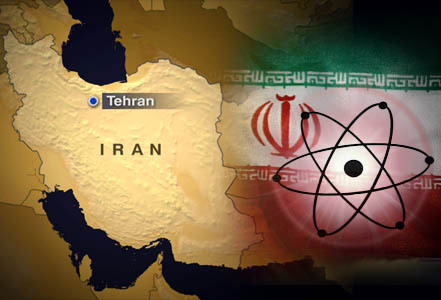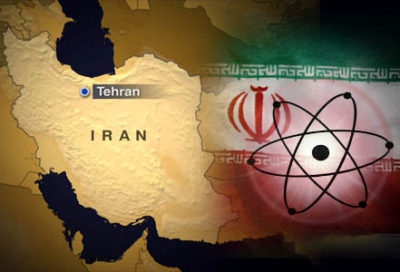 By NAHAL TOOSI
By NAHAL TOOSI
Donald Trump’s U.N. ambassador says the president “has grounds” to declare that Iran is not complying with the 2015 nuclear deal, stoking doubts about whether Trump intends to keep an international agreement and core legacy achievement for former President Barack Obama.
Nikki Haley, speaking Tuesday in Washington, said she did not know what Trump plans to do next month when he is due to certify to Congress whether Tehran is complying with the agreement. But she appeared to lay the groundwork for Trump to declare that Iran is in violation of the deal.
Haley stressed that such “de-certification” does not invalidate the nuclear deal or constitute a U.S. withdrawal. But it would likely enrage Iran and rattle U.S. allies in Europe and beyond who fear that Trump wants to unravel the agreement without actually declaring that the U.S. will no longer honor it.
“I’m not making the case for de-certifying,” Haley told an audience at the conservative American Enterprise Institute. “What I am saying is should [Trump] decide to de-certify he has grounds to stand on.”
In particular, Haley said, those grounds include findings that Iran twice exceeded the amount of heavy water (a form of water in nuclear reactors) it was allowed to have. The Obama administration brushed off those incidents as minor technical infractions that were quickly resolved. Haley also blasted Iran’s refusal to allow international inspectors to check all of its military facilities. She also alleged Iran has “hundreds of undeclared sites that have suspicious activity that [inspectors] haven’t looked at.”
The nuclear agreement—struck in July 2015 between the Obama administration, Iran, China, Russia, France, Germany and the United Kingdom—requires that Iran severely curb its nuclear activities in return for global sanctions relief. Inspectors with the International Atomic Energy Agency have repeatedly declared that Iran is upholding its end of the bargain.
Under a law passed by Congress, the U.S. president must tell lawmakers every 90 days whether the Islamic Republic is complying with the nuclear deal.
Haley said that, should Trump not certify Iranian compliance, he may choose to leave the decision on whether to quit the deal to Congress. That could involve lawmakers passing legislation that reimposes nuclear-related sanctions on Iran and effectively kills the agreement.
That was a surprising suggestion, especially considering that the nuclear agreement is not a formal treaty. Whether to scrap the deal would spark a highly charged debate and open rifts among Trump’s fellow Republicans, some of whom, while trashing the deal, would be loath to abandon it.
The suggestion also may frustrate lawmakers who already feel that Trump is punting too often to them on sensitive issues. On Tuesday, Trump urged Congress to replace the Deferred Action for Childhood Arrivals program, known as DACA, an Obama-era policy that defers the deportation of undocumented immigrants brought to the U.S. as children.
Asked whether the administration was placing too much hope in Congress, Haley said: “Our lives are not about being easy. Our lives are about being right.”
Obama cast the nuclear deal as essential to world peace. But as a candidate, Trump called it “the worst deal ever negotiated” and has repeatedly indicated a desire to find a way out of it.
The 2015 deal focused specifically on Iran’s nuclear program, not the larger dimensions of its foreign policy. Echoing a longtime conservative critique of the deal, Haley insisted that Iran’s non-nuclear behavior also should be considered.
Haley said that other countries are so worried about keeping the nuclear deal intact that they are willing to look past Iran’s human rights violations, its missile tests and other misdeeds.
“The Iranian nuclear deal was designed to be too big to fail,” Haley said.
But Haley got some immediate push-back on her demand that Iran’s non-nuclear behavior was fair game in determining the deal’s fate. France’s ambassador to the United States, Gerard Araud, wrote on Twitter shortly after Haley spoke: “The Iran deal is about the nuclear issue, nothing else. So far, Iran is abiding by the commitments taken in this mutually agreed framework.”
Supporters of the deal also argue that its participants have other ways of punishing Iran short of scrapping the agreement. For instance, the U.S. still has many sanctions on Iran — ones that don’t have anything to do with its nuclear program — and the Trump administration has imposed new ones since taking office.
Haley, often mentioned as a potential next secretary of state and even a future presidential candidate, also alleged that Obama was naïve in his view of Tehran, and that “everyone hoped that this deal was going to make the Iranian government good people.” Obama and his aides have hotly disputed that notion, insisting that the deal needs to be judged solely on whether it prevents Iran from obtaining a nuclear weapon.
Speaking two days after North Korea’s test of what it claimed was a hydrogen bomb, Haley warned that Iran could one day pose a similar threat to the U.S. Haley noted that major elements of the Iran nuclear deal expire after several years.
POLITICO


Leave a Reply
You must be logged in to post a comment.